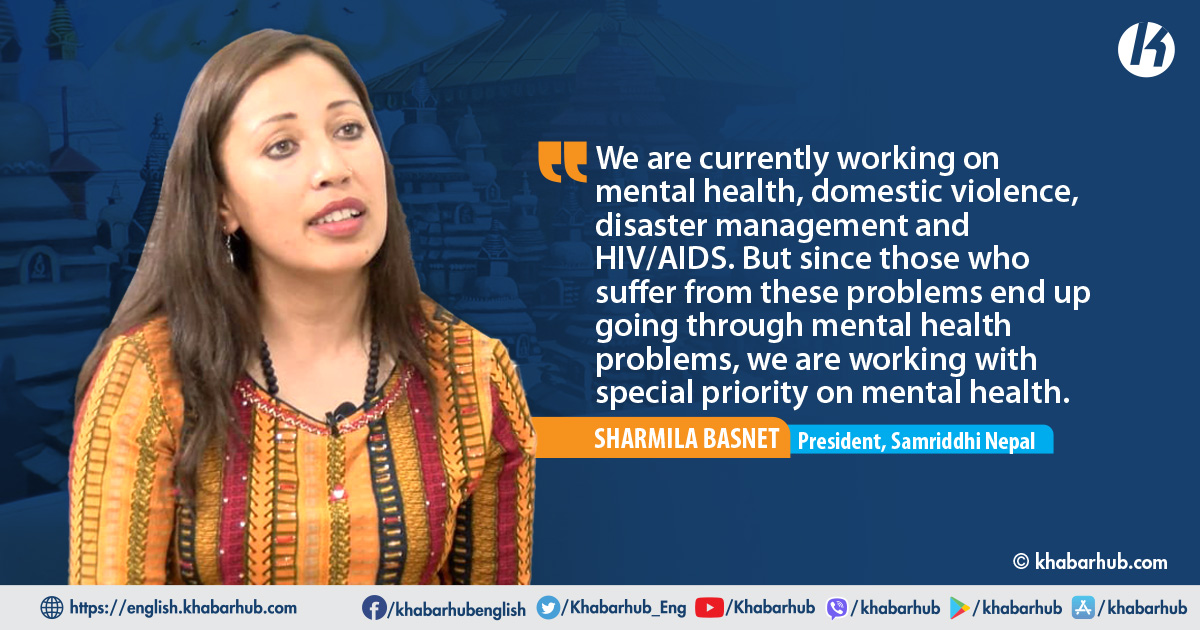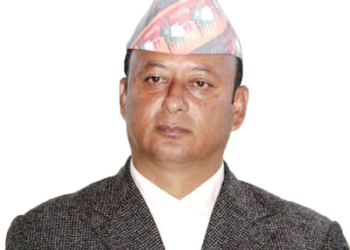KATHMANDU: Sometimes, suffering and failures make people strong and experienced. There are exemplary people in Nepal who are involved in such a campaign that others do not have to suffer such suffering and discrimination.
One among them is Sharmila Basnet, who has undergone all sorts of discrimination and sufferings right from her birth.
Her grandfather even did not want to see Sharmila when she was born simply because she was a daughter.
She got married at a young age when she was just 17. She became a mother the next year. However, she lost her husband when her son was 15 months old.
Now, the responsibility to raise and educate her son came to her shoulders.
But, she had to bear the brunt of the death of her husband because of her family.
However, according to Sharmila, her father-in-law was supportive and caring at that time.
Soon she got an opportunity to work in the field of HIV/AIDS by joining various groups and organizations with the help of her father-in-law.
Later, she established an organization called Samridhi Nepal and started her social work.
Khabarhub’s Yamuna Rana held a conversation with Sharmila Basnet, President of Samridhi Nepal about her struggle and how she established the organization. Excerpts:
In what sector is Samridhi Nepal engaged?
We are currently working on mental health. In fact, we also work on domestic violence, disaster management and HIV/AIDS.
But since those who suffer from these problems end up going through mental health problems, we are working with special priority on mental health.
Mental health is also considered a slightly more complex subject as people do not understand it easily.
How did you get started?
During the Covid pandemic, people suffered from mental health problems. When people have to lose their jobs, employment, and businesses, there were even instances of suicide.
Seeing such incidents, I felt that I should work on mental health problems. I then started talking and consulting it to my friends and well-wishers. We then started the work of forming an informal organization, ‘Loose Group’. We talked to the people in the group about mental health.
Later, we formally started working on it, transforming the same group into an organization.
What did you do before that?
Before that, I worked in the field of HIV/AIDS for about 15 years. While working there, no matter how many people were infected with HIV, I gradually saw them going through mental health problems.
I was also working in mental health simultaneously. But there was a bit more emphasis on physical health. I realized that I also need to focus on mental health.
And during the Covid-19 pandemic, women with HIV/AIDS had problems with food and medicine due to a lack of employment.
In order to manage it, we, together with a few friends, collected donations from our contact donors and individuals and distributed them to those in need.
At that time, we formally started with the idea of spending time on mental health.
What kind of people did Samridhi Nepal start with?
There were HIV-infected, domestic violence-affected women and children, and the victims of discrimination.
In the beginning, we started with 10 to 15 people. Now there are more than a hundred people. And the number is growing.
How did you expand the service?
We are trying to provide services by organizing programs in collaboration with various organizations. In mental health, The School of Psychology Nepal has provided technical assistance.
There is a group of psychologists and counselors.
They volunteer to advise members of our organization as well as assist in public health awareness programs.
We are holding such programs every week.
You have been working in four different sectors. What is the most common problem?
There are more people with mental health problems. I see more people getting into this problem due to unhealthy eating, lifestyle, and unhealthy competition.
The Covid pandemic exacerbated the problem.
What is the status of domestic violence?
Incidents of domestic violence seem to be on the rise. Women are the main victims of domestic violence.
We have found that most of them have become the victims of their husbands.
One such case came to us recently. A woman was severely beaten, mentally tortured and sexually abused by her husband.
Not being able to bear the torture, she committed suicide.
Similarly, we meet victims who have lost their homes due to domestic violence.
Unfortunately, we have not been able to manage a shelter for them as we are just doing public awareness work and campaigns.
However, we coordinate with other mental health organizations to help get them there.
How many people with such problems have you come across so far?
By now, we have dealt with more than two hundred people.
Some of them even committed suicide. Psychologists and doctors come to the institution and consult them. This has improved their condition.
Can we say that you were inspired to work in this sector by being a victim yourself?
Yes. I was married at a young age. I lost my husband when my son was just 15 months old.
The 15-month-old son is now 20 years old. I have experienced the problem of a single woman raising a son for so many years.
I had to struggle alone in society. I even found myself mentally deranged.
If I had not joined the organization, I would have been a victim of mental health problems.
Imagine how I had to face the attitude of the society, the family, and on top of that the responsibility of child-rearing and education.
But my work, spirituality and yoga did not let that go. I was inspired to start the work because I had experienced such problems in society.









Comment